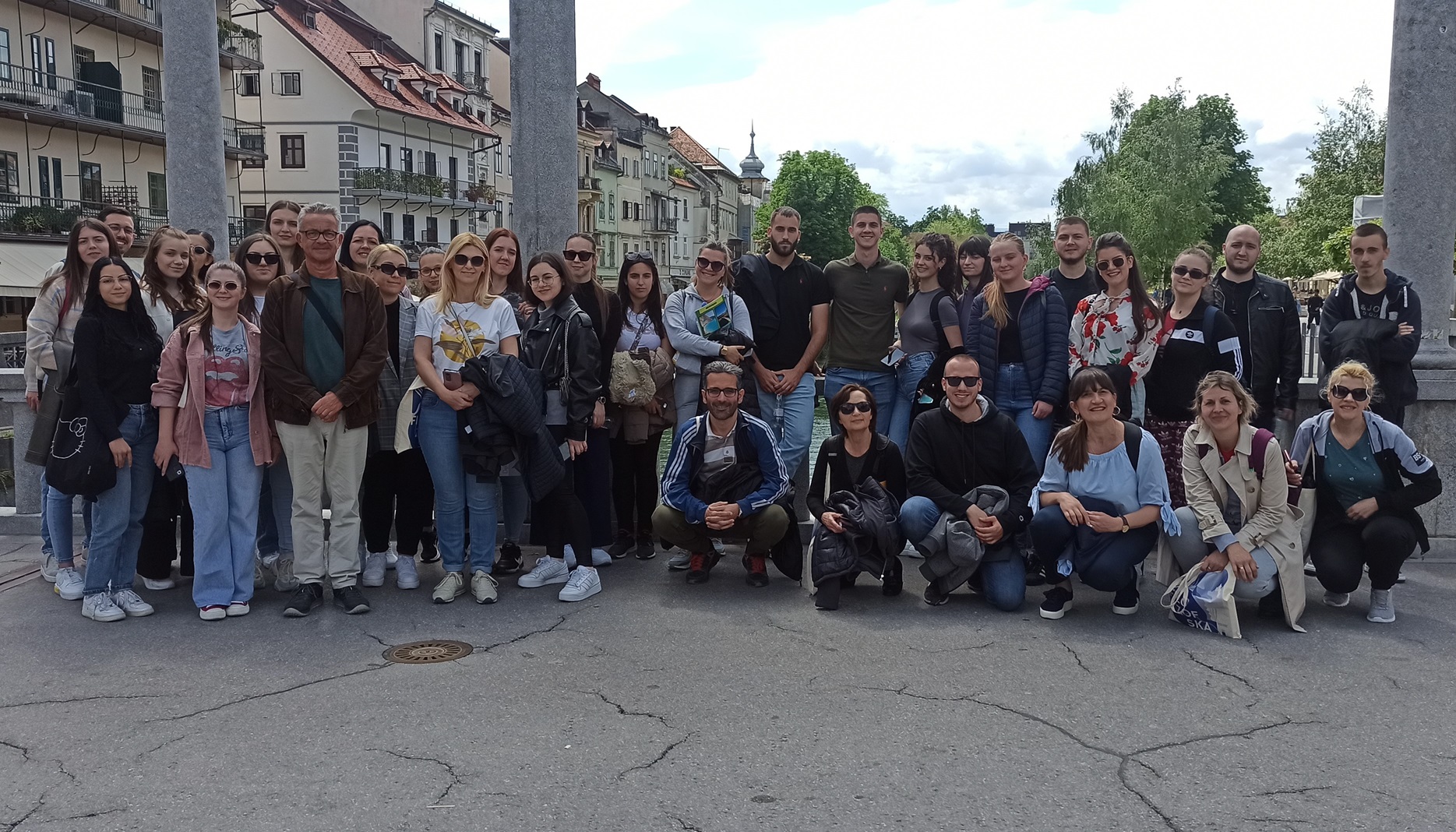Fieldwork for Geography and Spatial Planning Students

Undergraduate students from the Geography study program (Tourism, Teaching, and General tracks), alongside undergraduate and graduate students from the Spatial Planning study program, embarked on a field trip to Slovenia and Italy (Trieste). This venture was seamlessly integrated into the curriculum and facilitated by international collaboration with the Faculty of Logistics in Celje (University of Maribor) through the CEEPUS network “Tourism and Agriculture Sustainable Alliances – #TASA network” from May 13-18, 2024. The field trip encompassed a blend of theoretical insights and hands-on experiences. Professors from the Faculty of Logistics conducted engaging sessions on internet and social media data security, as well as the principles of sustainable tourism in rural settings. Additionally, students seized the opportunity to compare academic frameworks and study environments by visiting the Department of Geography at the Faculty of Arts, University of Ljubljana.
The meticulous planning and execution of the field trip were spearheaded by Prof. Dr. Mira Mandić and Prof. Dr. Dušica Pešević. Prof. Dr. Irena Medar-Tanjga, serving as the CEEPUS network coordinator for PMF, provided invaluable support. Furthermore, the field trip received backing from esteemed professors and collaborators associated with the CEEPUS network “Tourism and Agriculture Sustainable Alliances – #TASA network” and the bilateral project “Agrarian tourism as logistical support for the sustainability of the natural and cultural heritage of Slovenia and Republika Srpska”, including Prof. Dr. Tanja Mišlicki Tomić, Doc. Dr. Dragan Papić, Dr. Nevena Vučen Papić, Vukosava Čolić, MA, and Željka Ostojić, MA.
During the field trip, students were immersed in the geographical tapestry of Slovenia, exploring its rich cultural history, contemporary developmental dynamics, and strategies for spatial organization and cultural heritage preservation. They traversed diverse locales, from the historic city of Celje to the enchanting landscapes of Ljubljana, Bled, and the UNESCO-protected mercury mines in Idrija. The underground marvels of Kranj and Postojna Cave offered unique insights, while visits to Koper and Trieste showcased the region’s maritime heritage. A special focus was placed on health and rural tourism during visits to Rogaška Slatina and the Pomona tourist farm.
Throughout the expedition, students engaged in critical analysis and comparison of approaches to natural and cultural resource management, laying a robust foundation for their future careers. Delving into Serbian cultural heritage and the socio-cultural landscape in Slovenia and Trieste provided a deeper understanding of historical narratives and identity preservation. The field trip culminated in a poignant visit to the Donja Gradina memorial complex, where homage was paid to the victims of the Jasenovac concentration camp, fostering a solemn reflection on the region’s tumultuous past.
Author: Prof. Dr. Mira Mandić
































